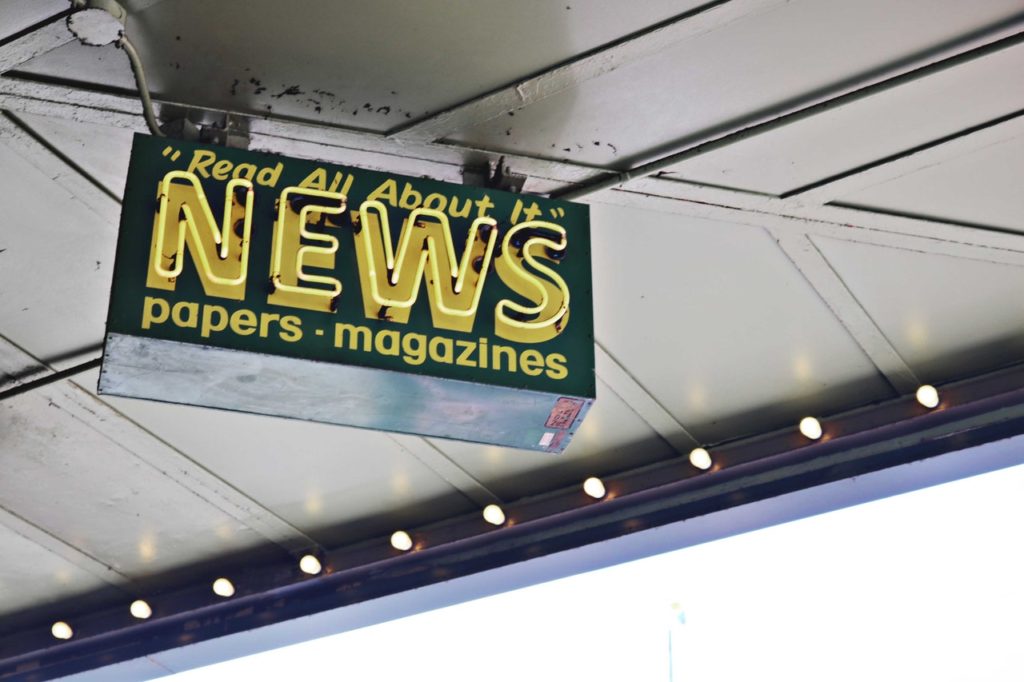For more lesson ideas, click here.
Lesson Ideas: News and the Media
The news and the media is a common topic in course books though one which has been revolutionised since the advent of the internet. As a result it may be important to consider how relevant any course book activities are to the way in which students receive and interact with news.

Possible Learning Outcomes:
Most people get information from the media in some way, although how people do this has changed in recent years. Fewer people are involved in producing information for mainstream media, although many people post on social media. The following may therefore be worthwhile communicative outcomes for this topic:
(All outcomes should be proceeded by “by the end of the lesson, students will be better able to”)
- read/listen to and understand new stories on the topic of [crime, sports, politics, entertainment, etc.]
- understand headlines and/or straplines
- retell a short news story they have read/heard
- identify credible and fake news stories
- devise questions about a news story they have read/heard
- express an opinion on a news item they have read/heard
- conduct a survey on opinions on a particular news story
- conduct a survey on (social) media habits
- prepare a short news story for publication
- write a social media post
- write a press release about an upcoming event
- devise interview questions for a person of media interest
Games/Activities:
Working with Headlines
Pictures/Video
The news or media frequently includes video and pictures that can be used in a number of ways.
One fun activity that can be done with pictures (and also used on the show Have I got news for you) is a caption contest. In this activity you simply need to show students an interesting video and have them attempt to caption it (or create a headline). A good picture will have a number of ways it can be interpreted. Pictures where someone is pulling an unexpected facial expression are gold for this.
Another idea you could try is the “newsflash” improvisation game from Whose line is it anyway. In the TV show, a green screen is set up, however you don’t necessarily need to use this if your students can use their imagination. Instead you need three students. One is a reporter. All of the other students must be able to see a screen with a video playing that they can’t see. The video is the situation that the reporter is reporting on. The other two students who are involved are news anchors. They are in the studio asking the reporter questions about the situation and should try to provide clues through their questions. The reporter then guesses what the situation was.
Checking Comprehension
Improving Vocabulary
Retelling Stories
Character Improvisation
Media Habits
S1: How often do you read a newspaper? Always, sometimes or never?
S2: Never. How often do you post on social media? Every day, once a week or less than once a week?
Interviews
Conducting interviews with people of media interest can lead to very exciting role plays that develop empathy as well as language skills. As the subject of an interview, a student could take the role of any of the following:
- a celebrity (from an international star such as Leonardo DiCaprio to a local celebrity),
- a witness (of a crime, major event, etc.),
- a government official,
- a spokesperson for a company, organisation or celebrity,
- a conspiracy theorist,
- a convicted criminal or acquitted suspect,
- someone at the centre of a human interest story.
A good way to conduct such interviews is to have students work together to write questions they would like to ask. Then students can be split into pairs and take turns to play the role of the interviewer and interviewee.
Don’t Miss A Thing!
Photo by Madison Inouye from Pexels



